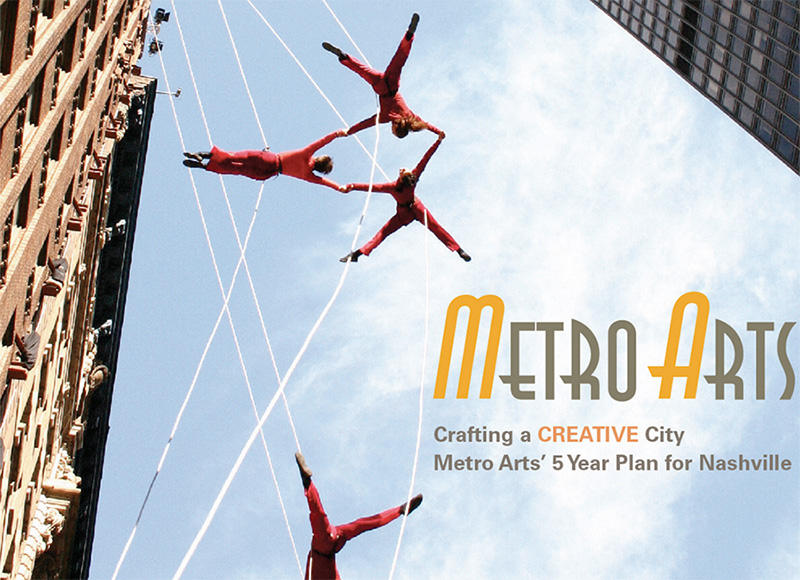
Updated at 4 p.m. Wednesday: This story has been updated for clarity and to link to a revised version of the Metro Arts report.*
Racism and elitism have been found in some of Nashville’s arts and culture organizations. The issues came to light in a series of interviews about whether the arts are accessible to the city’s increasingly diverse population, and now Metro is responding.
It started with Metro Arts — Nashville’s official arts agency — working on its strategic plan for the next five years and sensing that the city wasn’t fostering cultural diversity.
But they found that it went deeper than that.
Vanderbilt University Ph.D. student Jyoti Gupta was hired by Metro Arts* to conduct interviews with more than a dozen leaders of local arts groups for a study called “Holding the Mirror Up.” She uncovered “insidious assumptions” about race that “pervade” the city.
For example, one interviewee suggested that African-Americans don’t have the skills to become professional artists.
“Holding the Mirror Up” excerpt
One leader suggested that artists of color simply might not have the skills to uphold the level of excellence that is demanded by the organization or industry. Further, this entity equated being African- American with not having the resources and social norms (ability to adhere to the rules of field) to pursue a professional career in the field. The equation of equity or multiculturalism as diluting excellence must be interrogated by the arts sector.
And a local arts leader, who spoke about the Nashville Ballet,* reported that some Southern audiences don’t seem comfortable with non-white dancers. (So-called “Southern politeness” was also discussed by a different leader — who works with the ballet — as potentially deterring audiences from viewing the lightly clad bodies and intimate movements of ballet dancers.)
“Holding the Mirror Up” excerpt
Arts institutions grapple with the implications of being located in a city that upholds a cultural narrative of Southern politeness. A leader from the Nashville Ballet, for instance, noted that Southerners have been less comfortable gazing upon lightly clad bodies touching in intimate ways as they do in ballet, and instead, at least historically, have chosen to patronize artistic expressions where bodies are clothed. Speaking about the Nashville Ballet, one leader noted that some Southern audiences are made more uncomfortable when the dancers are of different racial or ethnic backgrounds.
More: Read the entire research paper, “Holding the Mirror Up.”
* A day after releasing its initial report, Metro Arts published a revised version that alters references to some specific arts organizations and that eliminates some comments. Read the revised report.
Performance organizations say they’ve found it hard to attract diverse audiences other than with one-time shows that target them.
And with funding tight for non-profits, some were more inclined to cater to their loyal fans instead of doing outreach.
City Prompts Study, Now Acts
Metro Arts Director Jen Cole said race relations demand a frank conversation.
“We’re never going to dismantle racism unless we first start with awareness and then behavior, and then behavior gets to institutional behavior, and we really kind of believe someone has to opt into that pathway,” Cole said.
She said Nashville is trying to be proactive in this discussion, and has taken cues from Seattle, which runs a racial equity in the arts program. That effort has already moved from the conversation stage to action steps and training for organizations.
Hear extended commentary on racial equity from Metro Arts Director Jen Cole:
“And this is sort of the question of a generation, related to how we are going to reflect the communities in which we live, work, and create,” Cole said. “And I think dealing with the issue of race — which has been an issue that not just the arts institutions, but many, many institutions have not dealt with — is a really hard one.”
More: Read the Metro Arts strategic plan
In its mission statement, Metro Arts argues that the arts help people feel a sense of belonging in a city.
So the agency has formed a study group with 20 local artists and leaders (see full list below). They’ll work with Vanderbilt’s Curb Center this year to host monthly discussions and a lecture series. They’re calling the project “REAL,” standing for Racial Equity in Arts Leadership.
The first lecture is 5:30 p.m. on Oct. 8 at the Nashville Children’s Theatre, featuring Northwestern University professor and director of the Center for Performance and Civic Practice, Michael Rohd.
Racial Equity in Arts Leadership members
- NerissaAquino, DancEast Workshop (DEW)
- Maryanna Clarke, Tennessee Women’s Theater Project
- Kelly Corcoran, Intersection
- Cynthia Frahm, Nashville Repertory
- Ellen Gilbert, Global Education Center
- Melissa Gordon, Project Return
- Ashley Howell, Frist Center for the Visual Arts
- Allison Inman, Belcourt Theatre
- Ovalla Jobe, Speak In Rhythm
- Courtney Adair Johnson, Seed Space
- Sharyn Mahoney, Nashville Ballet
- Michael McBride, Tennessee State University
- Teree McCormick, Tennessee Jazz and Blues Society
- Kathleen O’Brien, Tennessee Performing Arts Center
- Don Schlosser, Nashville in Harmony
- Noah Spiegel, Nashville Opera Association
- Alan Valentine, Nashville Symphony Association
- Shawn Whitsell, Southern Word, Inc.
- Levon Williams, National Museum of African American Music
- Mayra Yu, Casa de la Cultura Latino Americana
9(mda2nzqwotg1mdeyotc4nzi2mzjmnmzlza001))

